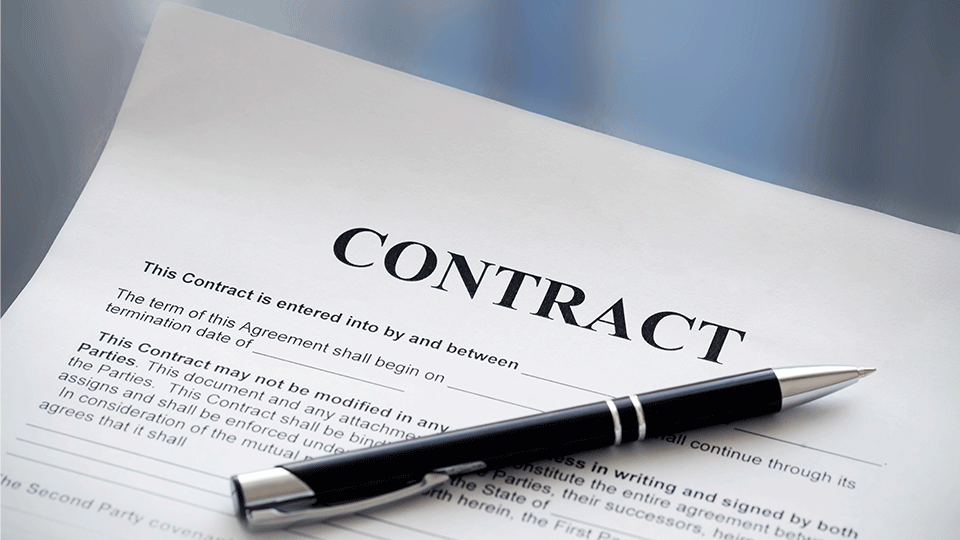
Whether you work for a large trucking company, a smaller outfit or operate a single truck under your own authority, you’ve probably worked with a freight brokerage at some point.
In many scenarios, freight brokers and carriers operate together seamlessly, connecting businesses around the U.S. (and the world) with the transportation solutions they need, when and where they need them.
This process is relatively straightforward: A company with freight to ship awards its shipment to a freight brokerage it trusts. In turn, the brokerage reaches out to a trucking company it knows can reliably haul its customer’s cargo. Similarly, this transaction is based on trust.
Unfortunately, however, not every freight brokerage — there are more than 20,000 in the U.S. — can be trusted. Some exist solely to turn a profit and pay little mind to ethics. Consequently, these types of brokers don’t build partnerships with trucking companies, like yours, and instead, leave nothing but a trail of smoldering bridges and failed loads once they, inevitably, exit the transportation realm.
While there are a lot of ways a freight brokerage can display unethical decision-making, one of the most common is through double brokering.
Simply put, double brokering is a scheme where one broker falsely represents itself as a trucking company when accepting a load from a freight broker and then proceeds to broker this shipment (a second time) to an actual carrier.
Double brokering isn’t something your trucking company wants to get mixed up in; the damage double brokering can do to your reputation, relationships and bottom line are significant.
Anderson Trucking Service (ATS) has been operating a freight brokerage division since 1989. Today, ATS Logistics — our freight brokerage company — consistently ranks among the best in the industry as it connects carriers with loads that pay well and shippers with capacity, every day.
Over the years, we’ve worked with thousands of carriers across the U.S. and understand the unique position the brokerage holds in this relationship.
You need to work with brokers you can trust, brokers who won’t make you feel uncomfortable with any transaction. Your business is important and your reputation matters. Don’t let double brokering or fraud mess this up.
In this article, you’ll learn how to avoid double brokering by outlining four red flags to watch for when working with a carrier and three tips for avoiding double brokering when choosing a broker and/or load.
What Does Double Brokering Look Like For the Carrier?
For you, double brokering might look like any other transaction, where you’re brokered a shipment after submitting a rate for it or accepting its tender. However, when double brokering exists, the broker you’ve agreed to haul for isn’t the original broker and has represented itself as a trucking company to another broker.
Now, hoping to turn a profit on the margin, they’re brokering you the shipment to actually execute its transport.
Although most great brokerages have systems in place for avoiding double brokering, this problem continues to snowball and will likely impact your business — and, if you’re not careful, your reputation — at some point.
So what can you do?
4 Double Brokering Red Flags to Watch For
Double brokering isn’t always easy to spot at first glance. In the fast-paced transportation industry, trucking companies can quickly get caught up in these schemes. Without due diligence, it’s next to impossible to know whether the company you’re working with is the first or second brokerage to broker the load.
As a trucking company, your goal is to keep your assets running efficiently and cost-effectively. That’s why taking the time to validate the identity and role of the broker(s) you utilize can sometimes feel like a hassle. However, this can’t be overlooked.
To help you steer clear of brokers that are double brokering freight here are red flags to watch for:
- Documentation that lists varying company names
- Email addresses that don’t match their MC number
- Incorrect or incomplete broker-carrier agreements
- Strange instructions for communicating with other stakeholders
1. Documentation That Lists Varying Company Names
One hallmark indicator that double brokering might exist is a broker sending you documentation with a company name listed that doesn’t match who you are working with.
If, for example, you receive a bill of lading (BOL) listing the hauling carrier as someone other than you or it differs from the broker you’re working with, be wary.
This could be the broker’s attempt to deceive other stakeholders. Whenever this occurs, bring it up to your point of contact right away. While it could be a clerical error, it might be something more and is certainly worth verifying. You may even want to reach out to the carrier listed on that BOL.
2. Contact Information That Doesn’t Match Their Official Registration
To gain operational authority, every freight brokerage has to register with the Federal Motor Carrier Safety Administration (FMCSA) and the Department of Transportation (DOT). In doing so, every brokerage will have registered USDOT, MC and FF numbers.
Use these to verify the broker’s existence, history and track record. You can search for brokers on the FMCSA’s SAFER website which will give you safety, registration, size and location information for every broker.
This is a great way to verify the validity of every broker. Use this information to cross-reference the email addresses, phone numbers and mailing addresses you’re being contacted from or instructed to contact. For example, if an email address doesn’t seem to match their company’s registered name, or you’re given a mailing address that doesn’t match their verified location, proceed with caution.
In an attempt to deceive the other parties involved, some brokers will use email addresses, phone numbers and websites that make it seem like they’re not a brokerage. If you feel like this is happening, remove your company from this transaction as soon as possible.
3. Incorrect or Incomplete Broker-Carrier Agreements
Competent brokerages work with a lot of trucking companies, scattering the U.S.
When they’re onboarded, each of these carriers signs a broker-carrier contract agreement, ensuring both parties understand their role. This includes setting expectations for how freight will be tendered, how communication will flow, how payments will be made and how insurance will work.

Freight brokers, like trucking companies, understand their reputation hinges on their ability to follow through on the commitments they make. Their broker-carrier contracts help to ensure they follow through.
So, if you’re asked to sign a broker-carrier agreement that seems suspect — incomplete, incorrect (listing various company names), oversimplified, etc. — this is a red flag. Reputable brokers have these documents ironed out so this should never be an issue.
4. Strange Instructions For Communicating With Other Stakeholders
As the party responsible for hauling cargo from A to B, you’ll need to be in contact with each load’s consignee and shipper. In a double brokering scheme, however, the broker these parties know is the original broker — the one who tendered the cargo to the second broker unknowingly.
For this reason, they’re unaware of the second broker’s presence and are expecting a truck from whichever company their broker told them was hauling the cargo. You don’t work for whatever “carrier” the second broker represented themselves as.
As such, if you’re caught up in a double brokering scheme, you may be asked to falsely represent yourself in conversations with other stakeholders. An example of this would be the broker asking you to tell on-site personnel at a pickup or delivery location that you drive for a different trucking company.
This is a sign that double brokering might be present.

3 Tips For Avoiding Double Brokering
Now you know some of the indicators for when double brokering might be present within a transaction, even if it's not immediately evident.
Your trucking company is too important to let something like double brokering upend your reputation and cost you money.
However, double brokering remains at large in many markets, making it increasingly challenging for companies like yours to snuff out legitimate transactions. Keeping your eye out for the red flags listed above is a great first step toward avoiding this unethical practice.
That said, here are three more tips for keeping your wheels under legitimately-brokered loads:
- Always do your due diligence
- Be wary of offers that are “too good to be true”
- Build relationships with each broker and understand their processes
1. Always Do Your Due Diligence
As a trucking company, there are quite a few ways to verify the identity of a new-to-you freight brokerage. This is the most impactful thing you can do to avoid double brokering.
Here are some of the things you can do, as a trucking company, to ensure a broker is legitimate and trustworthy:
- Search for their MC number on SAFER
- Ask for references
- Research the broker online, checking out their website and reviews
As you look into a new freight brokerage, we recommend you do more than one of these things. Making sure they are a reputable company means verifying their information through more than one avenue; many fraudulent brokers will create “dummy” websites or publish falsified information on the internet.
2. Be Wary of Offers That Are “Too Good to Be True”
Sometimes freight brokers will try to entice trucking companies into accepting a shipment, and overlook certain discrepancies, by offering them a rate that far exceeds what market pricing warrants.
Even though it’s intriguing and you deserve to make top dollar for your services, watch out for shipments that are considerably higher than market rates. This may be a sign of a scam where the broker uses your paperwork to get paid from the customer but then disappears when it’s time to pay you.
 When you see rates that seem too good to be true — they might be. Take a little extra time to check into that broker and their reputation.
When you see rates that seem too good to be true — they might be. Take a little extra time to check into that broker and their reputation.
3. Build Relationships and Understand Each Broker’s Processes
The relationships you have with the brokerage companies you trust are a great defense against double brokering. For the most part, carriers end up in this situation when they work with unfamiliar brokers.
To avoid falling into these schemes, consider finding a few great brokerages — that are easy to work with and have processes you understand — and sticking with them.
The more you understand the brokerage you’re working with, the better off you’ll be. Build relationships with a core group of brokers, regularly communicate with them and select freight from their load boards, applications and portals.
And, if it makes you feel better, steer clear of new brokers until they have established a good reputation in the industry.
Avoid Double Brokering: Work With Trustworthy Brokers
Great trucking companies, like yours, play a vital (irreplaceable) role in the world. You connect people with the products and materials they need to live happy, fulfilling lives.
Your trucking company needs to avoid getting caught up in double broker schemes — it could damage your reputation and leave you without payment for a shipment you hauled.
Now you know to watch out for these four double-brokering red flags:
- Documentation that lists varying company names
- Email addresses that don’t match their MC number
- Incorrect or incomplete broker-carrier agreements
- Strange instructions for communicating with other stakeholders
You also understand how important doing your homework on each broker, avoiding “too good to be true” offers and building relationships and rapport with your brokers is.
With these understandings, you’re far more prepared to avoid experiencing the fallout of double brokering. That said, you’re not done yet. Your next step is to find a group of reputable freight brokers to work with.
Here is a list of the best freight brokers in the business, maybe you should start there.
Also, if you have any questions about ATS Logistics, or if you’d like to learn more about becoming a carrier for us, don’t hesitate to contact us here.
